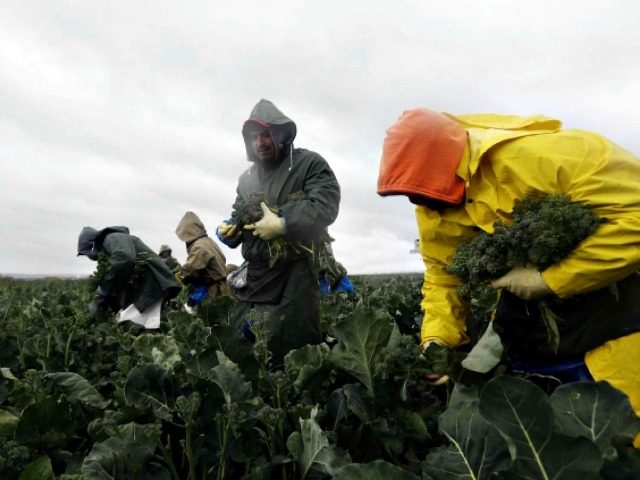Sen. John Boozman (R-AK) lobbied for Mexican foreign workers on a friend’s behalf, according to a report disclosing emails from one of Boozman’s staffers obtained by the Immigration Reform Law Institute through an open records request.
The report includes emails from Rebecca Caldwell, a staffer for Boozman’s office, to the U.S. consulate in Monterrey, Mexico, asking for 80 farm hands to work on an Arkansas farm.
Caldwell wrote in an email May 28, 2015, that she is reaching out to the consulate “on behalf of my constituent Doug Gillam of Gillam Farms of Arkansas, INC.”
“The senator has asked that I reach out to you regarding this issue as he is personal friends with [redacted],” Caldwell added.
Boozman’s office declined to comment or give the identity of the personal friend referenced in the email.
Gillam does, however, own the farm with his brother Jeremy Gillam, who is the Speaker of the Arkansas House of Representatives.
Caldwell wrote in an “urgent” email that Doug Gillam needed 80 workers. The emails did not include responses from State Department officials about how Gillam fared in obtaining the low-wage workers.
Caldwell also referenced an I-129 petition commonly used for non-immigrant workers. Gillam’s workers would have received H-2a visas for temporary or seasonal farm workers.
Jeremy Gillam told the Arkansas Democrat-Gazette that he needed low-wage foreign workers to ensure his farm’s blueberry crop would not die out.
“They’re professionals,” Jeremy Gillam said. “They’re just so used to doing it. It’s what they do. They’re phenomenal at what they produce. For us, it’s what makes all the difference in the world in terms of staying competitive.”
Mark Krikorian of the Center for Immigration Studies testified at a Senate hearing in 2005 stating that Australian farmers created a technique called “dried-on-the vine production” that would cut down on labor due to shortages of foreign workers available in the country.
Krikorian added that the U.S. was slow to adopt this method “because the mass availability of foreign workers has served as a disincentive to farmers to make the necessary capital investment.”

COMMENTS
Please let us know if you're having issues with commenting.